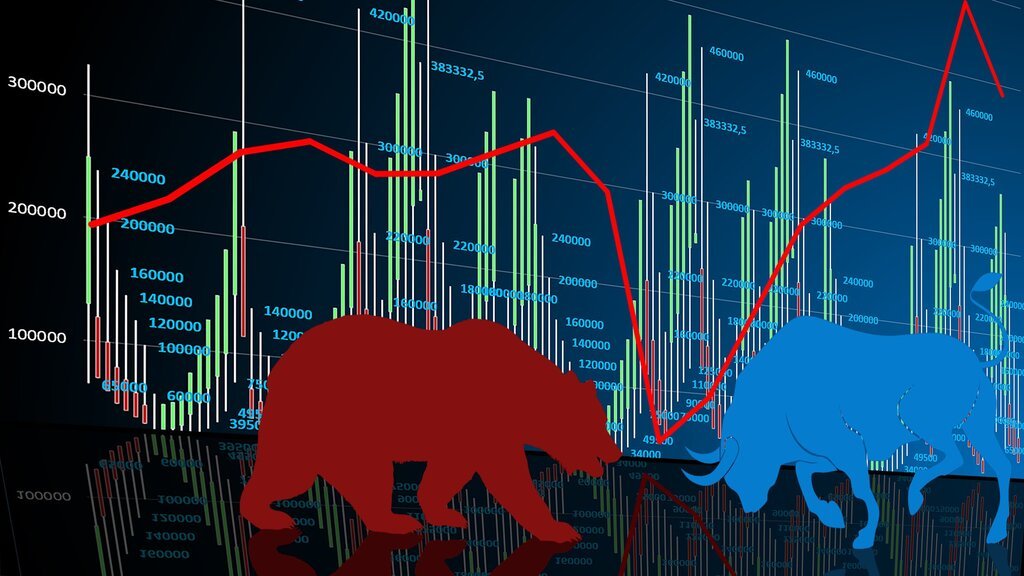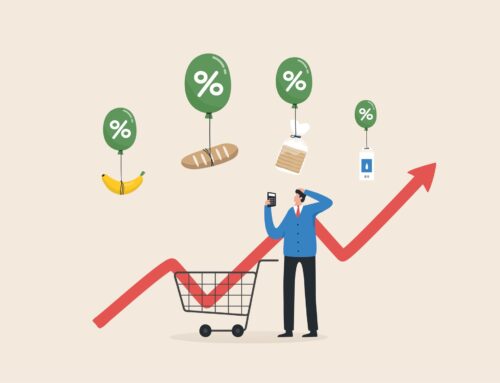
As we saw during the COVID-19 pandemic, what happens somewhere halfway around the world can have a major impact on us. Now, the global economy faces new threats as a result of Russia’s invasion of Ukraine, including spiking energy prices, inflation, and a volatile market. Know how you could be affected and what strategies you can pursue to help protect your savings.
Are You Protected from Market Corrections?
We’ve seen market volatility recently and could see more depending on what happens in Ukraine and what the Federal Reserve does. Oil prices are surging and could continue to rise as the U.S. and Western allies impose severe economic sanctions against Russia, a major exporter of oil. Higher oil prices could very likely exacerbate already high inflation and raise concerns about a recession. This, in turn, could cause the Federal Reserve to tighten its monetary policy and raise interest rates faster than expected to help combat already high inflation. Historically, the market tends to react poorly to rising interest rates,[1] so consider how much investment risk you’re taking on. Know how you can handle a volatile market now and in the future.
Do You Have a Pension?
If you have a pension, you may consider your retirement income to be more secure than someone who has to rely on their savings. However, inflation and market volatility can still affect you. Pension funds around the world are reviewing their investments in Russia’s energy, banking, and mining sectors. Some have announced plans to dump their holding in Russia, but selling holdings could be complicated.[2] If you have a private pension, payments may not increase with inflation, so consider the effect of inflation over the course of 20 or more years. If you don’t have a pension, inflation and market volatility can still impact your ability to make your retirement savings last for the rest of your life.
Social Security Benefits Don’t Necessarily Keep Up with Inflation
Most years, Social Security beneficiaries see a Cost of Living Adjustment (COLA) that accounts for inflation. In 2021 the COLA was 1.3%[3], and the COLA for 2022 was 5.9%, due to high inflation.[4] However, the Senior Citizens League estimates that the average Social Security benefit has lost a third of its buying power since 2000.[5] This has happened mostly because benefit increases have not kept up with the increasing cost of prescription drugs, food, and housing. If your Social Security benefit loses value over time, how will you make up the difference?
Today’s retirees may face a difficult combination of factors: a volatile market, low interest rates, and higher inflation. The question is what to do about it. There’s no simple solution or single piece of advice that applies to every single person. There are certainly a ton of reasons to make sure your retirement plan is ready for whatever the future could throw at us. Click HERE to sign up for a time to meet with us at SHP Financial to discuss what you can do.
[2] https://www.wsj.com/articles/divesting-from-russia-proves-complicated-for-pension-funds-11646193559
[3] https://www.ssa.gov/oact/cola/colaseries.html
[4] https://www.usatoday.com/story/money/2021/09/14/social-security-cola-2022-benefit-rise-could-6-most-since-1982/8334935002/
[5] https://seniorsleague.org/loss-of-buying-power-2/#:~:text=
The content presented is for informational purposes only and is not intended as offering financial, tax, or legal advice, and should not be considered a solicitation for the purchase or sale of any security. Some of the informational content presented was prepared and provided by Lone Beacon Media, LLC dba Lone Beacon, while other content presented may be from outside sources believed to be providing accurate information. Regardless of source no representations or warranties as to the completeness or accuracy of any information presented is implied. Lone Beacon Media, LLC is not affiliated with the Advisor, Advisor’s RIA, Broker-Dealer, or any state or SEC registered investment advisory firm. Before making any decisions you should consult a tax or legal professional to discuss your personal situation.
Investment Advisory Services are offered through SHP Wealth Management LLC., an SEC registered investment advisor. Insurance sales are offered through SHP Financial, LLC. These are separate entities, Matthew Chapman Peck, CFP®, CIMA®, Derek Louis Gregoire, and Keith Winslow Ellis Jr. are independent licensed insurance agents, and Owners/Partners of an insurance agency, SHP Financial, LLC.. In addition, other supervised persons of SHP Wealth Management, LLC. are independent licensed insurance agents of SHP Financial, LLC. No statements made shall constitute tax, legal or accounting advice. You should consult your own legal or tax professional before investing. Both SHP Wealth Management, LLC. and SHP Financial, LLC. will offer clients advice and/or products from each entity. No client is under any obligation to purchase any insurance product.





